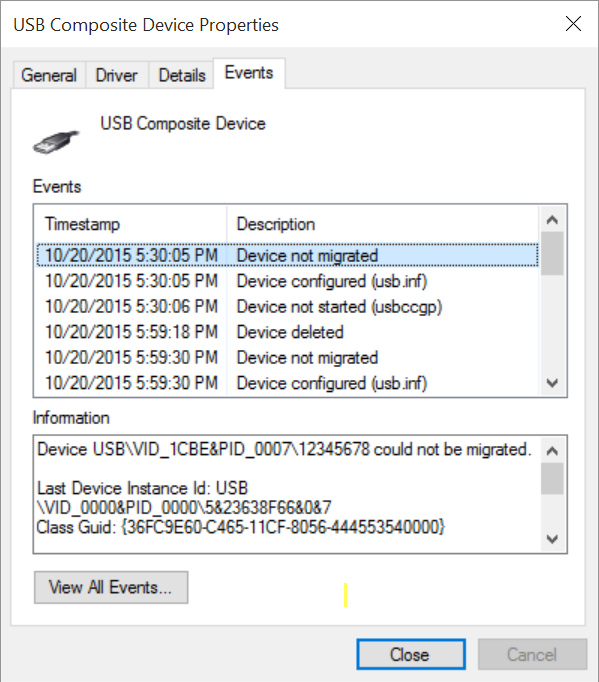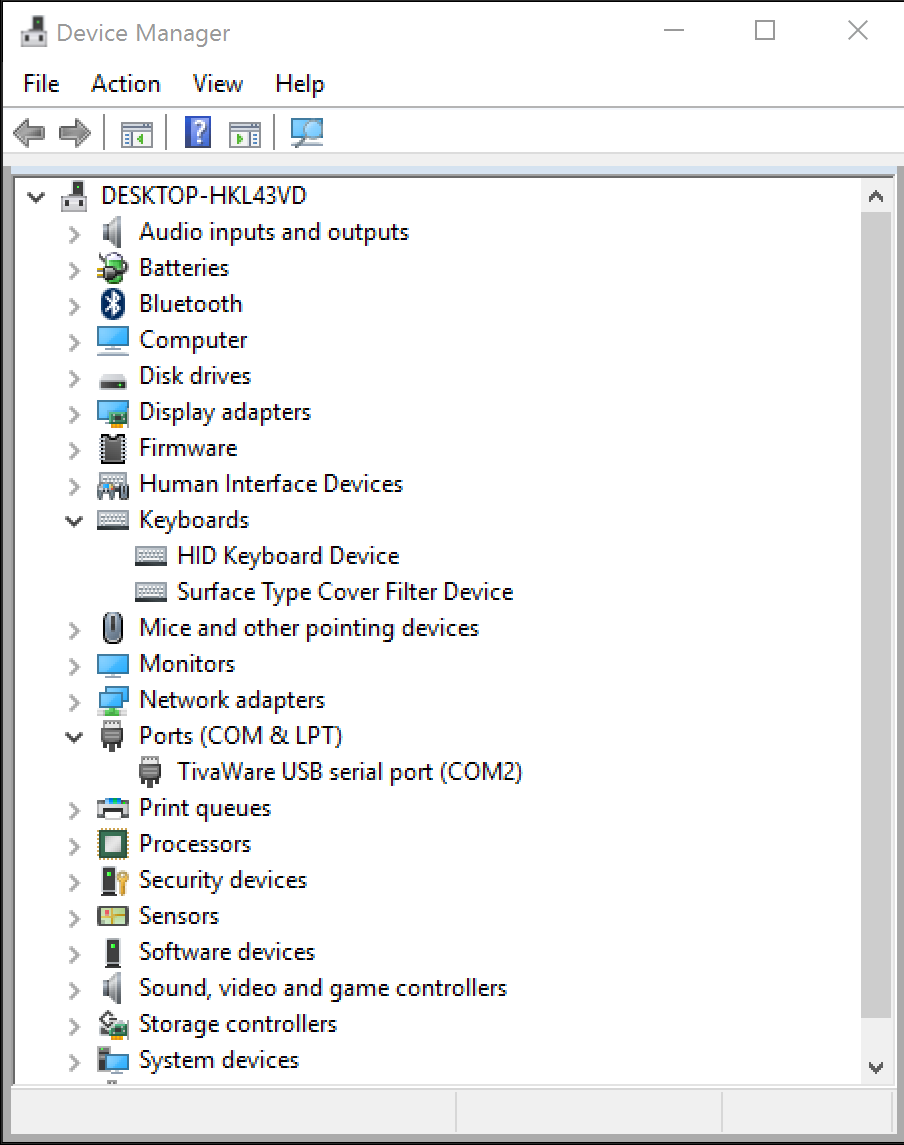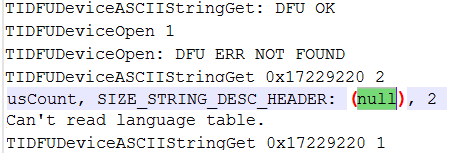I am trying to install the drivers for a composite device on Windows 10. I will need to support this in the field.
I had similar issues installing the ICDI drivers but was able to get around the issue by turning of driver signature enforcement. That procedure didn't work in this case.
The composite device installs, but shows a warning flag under device manager. The device events shows that the serial devices contained in the composite did not properly install:
I have spent an entire day on this with no luck.
The EKTM41294xl device is running the example code usb_dev_cserial project with no changes. The .inf files are "out of the box" from the TI windows driver folder.






